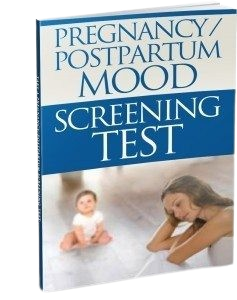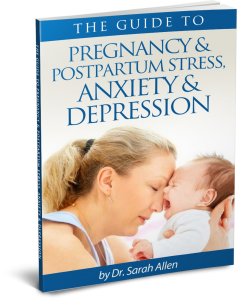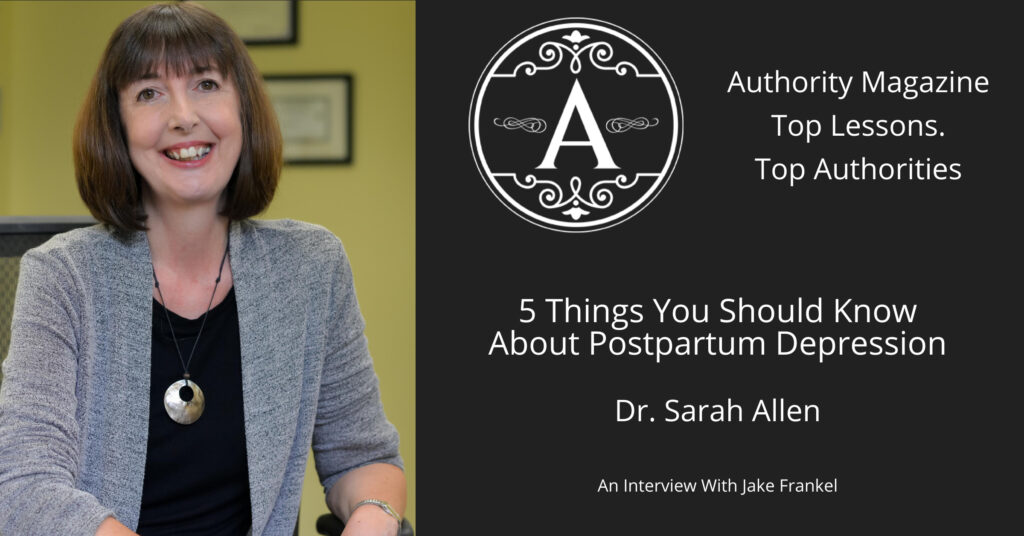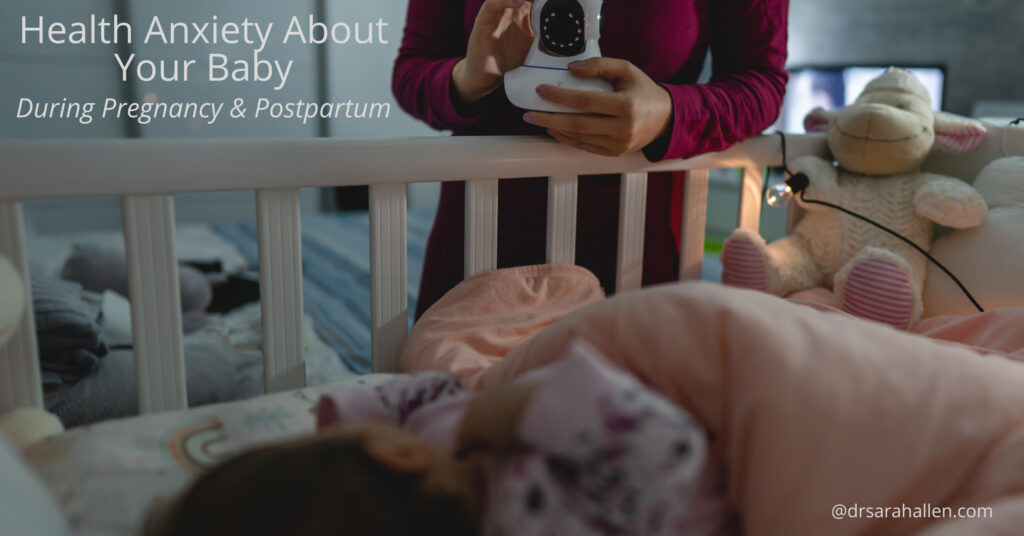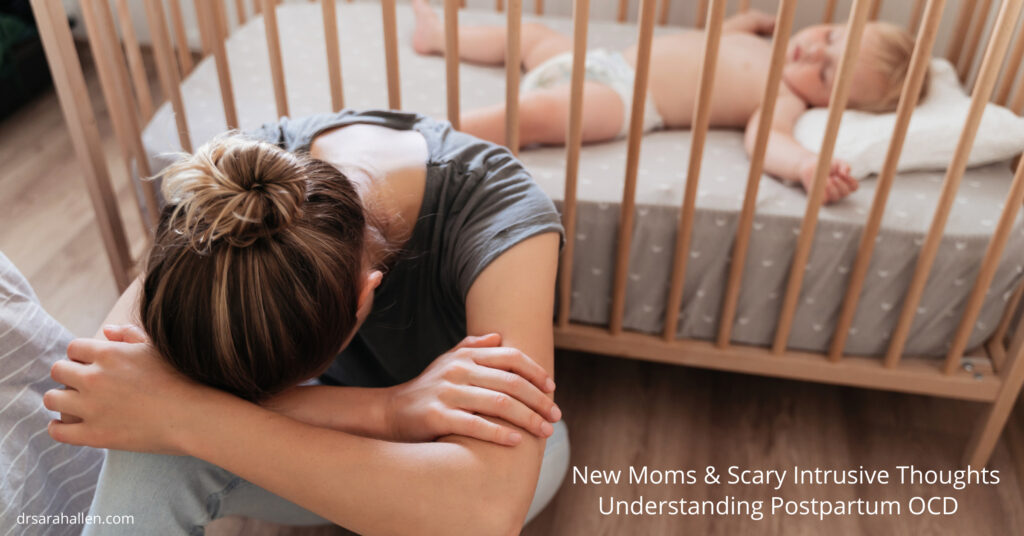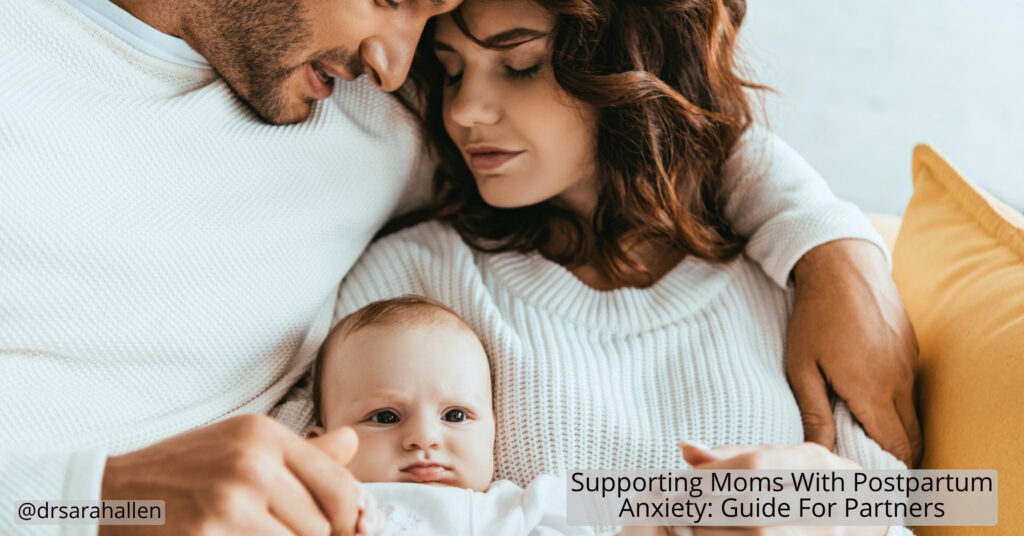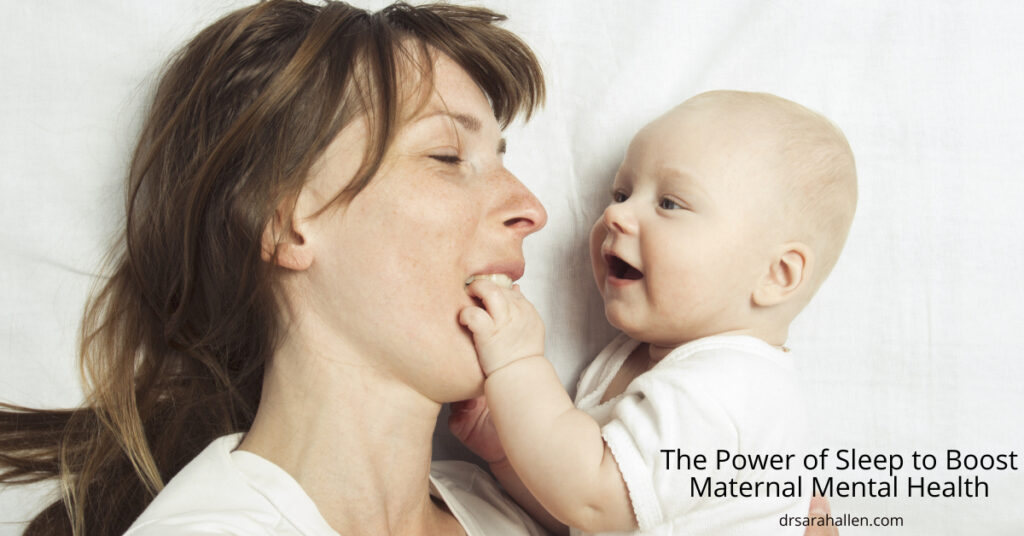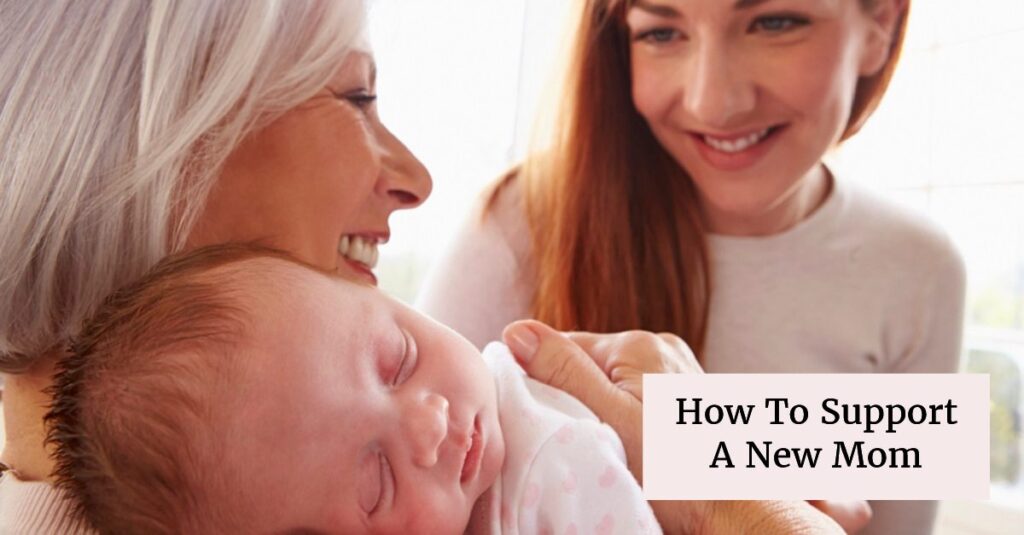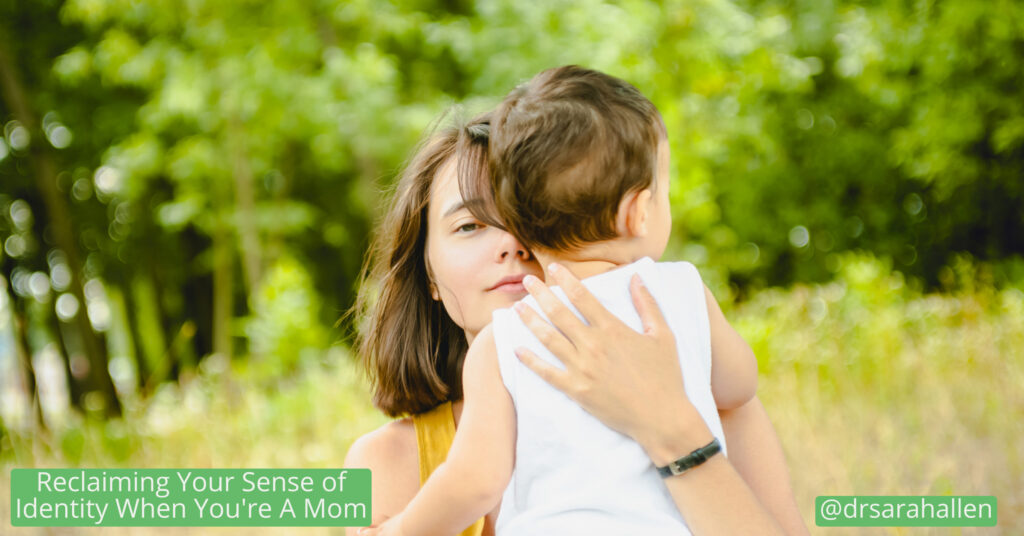
Becoming a mother is a profound transformation that extends beyond physical changes to encompass shifts in identity and self-perception. Something that comes up again and again when I am working with new moms are strong feelings relating to loss of identity which can trigger feelings of isolation and sadness. Women say they are not feeling like their “old self” and ask “how can I start feeling myself again?”
I wrote this article to delve into why and how new mothers might lose their sense of self identity, the impact this has, and effective ways to navigate and recover personal identity while embarking on the journey of motherhood.
Understanding the Roots of Identity Loss in New Mothers
The journey into motherhood can lead to profound internal upheaval, particularly concerning a woman’s sense of self. Many new mothers report feeling as though they lose a part of their identity to the all-consuming role of being a mom. This phenomenon can be traced back to numerous factors, including societal expectations, hormonal changes, and the abrupt lifestyle adjustments that accompany the arrival of a baby. The societal archetype of the ‘perfect mother’ pressures women to prioritize motherhood above all else, often at the expense of their individuality. This unrealistic standard can make mothers feel inadequate when they struggle to align their reality with these imposed ideals.
The Impact of Hormonal Changes and Social Isolation
Hormonal fluctuations during and after pregnancy can significantly affect a woman’s mental and emotional state. Hormones like estrogen and progesterone, which see sharp rises and falls during pregnancy and after birth, can impact mood regulation and perception of oneself.
New mothers also typically face a considerable lack of sleep, which can significantly impact one’s mental and emotional state. The physical demands of childbirth and nursing, combined with the chronic sleep deprivation and the constant demand for attention and care that a newborn requires, can leave little room for personal time, which can lead to a sense of loss of one’s autonomy and personal space.
Additionally, there’s the challenge of social isolation. Many new mothers find themselves cut off from their social circles and previous routines that support their social identity and emotional health. Without these everyday interactions, you can feel disconnected from the world that you once navigated with ease, further blurring your sense of identity. This isolation can be compounded by feelings of inadequacy, particularly with the pressure to immediately bond with the baby or intuitively know how to handle all aspects of care. These pressures, often magnified by social media and societal expectations, can really make mothers feel like they are somehow failing or falling short of being “perfect.”
It can be beneficial to join mom groups or mom and baby classes where sharing experiences and challenges with those undergoing similar life changes can validate your feelings and foster a supportive community. These types of connections can reminder you that you are not alone in your struggles and can often provide a means for exchanging coping strategies.
Going Back To Work & Personal Identify
A lot of women fear returning to work after maternity leave because of missing their baby and concerns about how to manage everything. Everyone is different in what is best for themself and their family, but I have noticed that many women actually feel less depressed or anxious after returning to work as it can play a pivotal role in overcoming feelings of identity loss. Engagement in professional activities, whether full-time or through part-time work, freelancing, or even volunteering, can foster a sense of purpose and achievement outside of family responsibilities.
Balancing Motherhood and Personal Growth
Achieving a balance between being a mother and nurturing your own personal growth requires conscious effort. It involves continuously making choices that align with one’s values. Sometimes it can seem overwhelming so start by setting small, attainable goals that can gradually lead to larger achievements. It may be that you want to learn improve your physical or emotional well-being or how you want to make changes to your job (if possible) now you have to balance work and home life. Keeping your eye on your personal goals can help you maintain a focus on your own personal development and identity.
Strategies to Reclaim and Reinforce Your Sense of Self
Navigating motherhood requires tapping into new and sometimes unfamiliar parts of oneself. With everything you have to get done, it is really easy not to make time for yourself but it doesn’t have to take a huge effort. One effective strategy is setting aside “me” time which isn’t about managing to get a quick shower – that is a basic need. It can be as simple as spending a few minutes a day doing something you love, like reading, taking a walk, talking with an old friend or creating art. It could also involve signing up for a class and allowing yourself to get the help you need from a partner, family member or babysitter so you can go regularly. It is okay to prioritize yourself.
Sometimes it can seem overwhelming so start by setting small, attainable goals that can gradually lead to larger achievements. It may be that you want to learn improve your physical or emotional well-being or how you want to make changes to your job (if possible) now you have to balance work and home life. Keeping your eye on your personal goals can help you maintain a focus on your own personal development and identity.
It’s also important for partners and family members to support new mothers in these pursuits. This support can include sharing household and parenting responsibilities to give mothers time to engage in activities that contribute to their sense of identity.
Another strategy is setting boundaries. Communicating your needs clearly with your partner, family, and friends is important. Letting them know when you need help or just some time to yourself can be empowering and help maintain your personal identity amidst the responsibilities of motherhood. Additionally, maintaining a journal can be a therapeutic practice, helping you to document your feelings and reflect on your personal growth during this transitional phase. This can support self-reflection, reinforcing a sense of self within your new identity as a mom.
Here are strategic some ways to begin reclaiming one’s sense of self while adapting to motherhood:
- Set Aside Time for Yourself: It’s important to schedule regular intervals for self-care. This could be something as simple as reading a book, practicing a hobby, or exercising. These activities are not just leisurely; they are essential for mental health and well-being.
- Maintain Connections: Keeping in touch with friends, colleagues, and family members can help mothers feel grounded in their pre-motherhood identity. Even if the frequency and nature of these interactions change, just staying connected can reduce feelings of isolation.
- Set Realistic Expectations: Understanding that it’s okay to not be a perfect parent can significantly alleviate self-imposed pressure. Accepting that one can care deeply for their child and still pursue personal ambitions or interests is vital.
- Seek Professional Help: Talking to a therapist who specializes in maternal mental health can be incredibly beneficial. I help new mothers unravel the emotional complexities of motherhood, offer tools to manage feelings of loss and strategies to forge a new, integrated identity.
- Ask For Help: When family and friends ask what they can do to help, be specific. Allowing yourself to accept practical help can allow you to get the rest and time for yourself.
If you are experiencing postpartum anxiety or depression please share this articles with partners and friends who ask to help:
How To Support A New Mom Who Is Struggling With Postpartum Depression
Supporting Moms with Postpartum Anxiety: A Guide For Partners
The Role of Therapy in Restoring Identity
Counseling, also called talk therapy, can play an important role in helping new mothers navigate their feelings of identity loss. I can provide you with a safe space to express and work through emotions that might feel confusing or overwhelming. We can also unpack feelings of guilt or inadequacy that frequently come with motherhood and I can offer strategies customized to your individual needs, such as coping mechanisms for stress, techniques for effective communication with loved ones, and ways to integrate previous aspects of your identity with your new roles. These tools help alleviate immediate stresses and contribute to long-term well-being, making mental health a priority during the postpartum period and beyond.
Embracing motherhood involves navigating a complex mix of emotions and identity shifts. If you’re struggling with feelings of identity loss or other maternal mental health issues such as pregnancy or postpartum anxiety or depression, remember you are not alone. At Dr. Sarah Allen Counseling, I focus on empowering new mothers to navigate these changes confidently. My approach integrates practical day-to-day strategies with professional therapeutic techniques, helping you to reclaim your sense of self while embracing motherhood.
To learn more about how I can support you during this significant life transition, please contact me today. Together, we can ensure that becoming a mom adds to your life rather than feeling like it’s subtracting from who you are.

Dr. Sarah Allen has 25+ years of experience helping women to transition to being the mom they want to be. She is also the Director of the Postpartum Depression Alliance of IL, a non-profit she started 20 years ago that offers information & support to pregnant & postpartum women and their families. She has also published research on postpartum depression and traumatic childbirth and presented at conferences.
If you would like to work with Sarah, please phone her at 847 791-7722 or on the form below.
If you would like to read more about me and my areas of specialty, please visit Dr. Sarah Allen Bio. Dr. Allen’s professional license only allows her to work with clients who live in IL & FL & the UK and unfortunately does not allow her to give personalized advice via email to people who are not her clients.

What Can I Read That Helps Me While I Am Waiting For My First Appointment With Sarah?
If you feel that you may be experiencing pregnancy or postpartum mood disorder, or worry that you may be at risk of developing it, please download my free booklets below.
See each specific webpage to download one or many.
